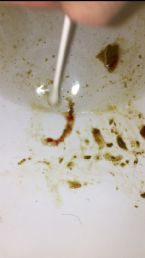ask your doctor specifically which supplements he or she recommends against and specifically WHY they recommend against them. get them to be specific. there is a possibility that something in some s...
ask your doctor specifically which supplements he or she recommends against and specifically WHY they recommend against them. get them to be specific. there is a possibility that something in some supplement somewhere could be counterindicated to your condition.
if i were you i would get a juicer, a twenty pound bag of organic carrots and drink a big glass of carrot juice every single day. add some lemon juice and take some kelp along with your juice, for a real boost. the carrot juice is high in beta carotene which the eyes needs, the kelp is high in minerals, and the lemon juice helps to metabolize the minerals.
i would also take some high quality fish oil everyday. nordic naturals is my personal favorite brand, they have mint flavored oil that tastes great.
here is some good info from the U of maryland medical center on macular degeneration, i think all this info would apply to your condition.
http://www.umm.edu/altmed/ConsConditions/MacularDegenerationcc.html#Treatment
Complementary and Alternative Therapies
Nutrition is a valuable treatment for dry macular degeneration. It may also help prevent both wet and dry types related to aging.
--------------------------------------------------------------------------------
Nutrition
Antioxidants that protect your retina—such as carotenoids, selenium, zinc, and vitamins C and E—may either delay the progression of macular degeneration if you already have the eye condition (meaning that your vision won't get worse as quickly) or prevent the development of this serious eye disorder. Two particular carotenoids, lutein and zeaxanthin, may be particularly beneficial. Antioxidants can be obtained from foods or supplements.
Eating a diet high in vitamins C and E and carotenoids is likely all that you need to lower your chances of developing macular degeneration in the first place. (In other words, supplements are probably not necessary for prevention.) Vegetables rich in carotene include orange and yellow squash, and dark, leafy greens, such as kale, collards, spinach, and watercress.
If you already have macular degeneration, especially if it is somewhat advanced, and you decide, with the advice of your healthcare provider, to take supplements, the following are some suggested amounts of key nutrients:
Mixed carotenoids, 25,000 to 50,000 International Units (IU) a day
The carotenoid lutein, 5 milligrams (mg) a day
Selenium, 200 to 500 micrograms (mcg) a day
Zinc, up to 50 mg a day
Vitamin C, 60 to 2000 mg a day in divided doses; doses over 1000 mg a day may cause gastrointestinal problems, including nausea and diarrhea
Vitamin E, 50 to 1000 IU a day (usually 400 to 800 IU a day)
Flavonoids (such as quercetin, rutin, and resveritrol) may also play a role in preventing macular degeneration. A study of 3,072 adults with macular changes showed that moderate red wine consumption may offer some protection against the development or progression of macular degeneration. Red wine is high in certain flavonoids (including quercetin, rutin, and resveritrol) that have antioxidant activity; damage from oxidative stress is thought to contribute to the development of macular degeneration. Dark berries, such as blueberries, blackberries, and dark cherries, are high in flavonoids as well.
Omega-3 fatty acids may also offer some protection against macular degeneration. In a study of more than 3000 people over the age of 49, those who consumed more fish in their diet were less likely to have macular degeneration than those who consumed less fish. (Most types of fish are rich in omega-3 fatty acids). Similarly, a study comparing 350 people with macular degeneration to 500 without found that those with a proper ratio of omega-3 to omega-6 fatty acids and higher intake of fish in their diets were less likely to have this particular eye disorder. Another larger study found that consuming docosahexaenoic acid (DHA) and eicosapentaenoic acid (EPA), two types of omega-3 fatty acids found in fish, four or more times per week may reduce the risk of developing macular degeneration. Notably, however, this same study suggests that alpha-linolenic acid (ALA; another type of omega-3 fatty acid) may actually increase the risk of this eye condition.
--------------------------------------------------------------------------------
Herbs
Ginkgo (Ginkgo biloba), which contains flavonoids, may help halt or lessen some retinal problems. Clinical studies suggest that it may be useful in treating vision problems specifically due to macular degeneration. If you use anticoagulants, do not use ginkgo without close monitoring by your healthcare provider.
Bilberry (Vaccinium myrtillus) and grape seed (Vitis vinifera) are also high in flavonoids; therefore, they may help prevent and treat macular degeneration. Clinical studies suggest that these herbs may stop vision loss and improve visual sharpness. Here are the recommended doses:
Ginkgo standardized to 24%, 120 mg once or twice a day
Bilberry extract standardized to 25%, 120 to 240 mg twice a day
Grape seed, 50 to 150 mg once or twice a day


